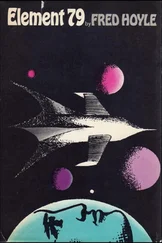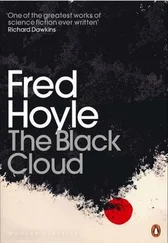“Local talent. Dennis’s. I’ve no time.”
“Pity,” she said. But he appeared not to hear. Taking another swig from the flask, he addressed himself unsteadily to the bowling. Bridger turned confidentially to her.
“What have you heard about me?”
“Only that you’d been working with Dr. Fleming.”
“It isn’t my cup.” He looked aggrieved; the point of his nose twitched like a rabbit’s. “I could get five times my salary in industry.”
“Is that what you want?”
“As soon as that lot on the hill’s working, I’m away.” He glanced across at Fleming, conspiratorially, then back at her. “Old John will stay, looking for the millennium. And before he’s found anything, he’ll be old. Old and respected. And poor.”
“And possibly happy.”
“John’ll never be happy. He thinks too much.”
“Who drinks too much?” Fleming lurched back to them and marked up his score.
“You do.”
“All right—I drink too much. Brother, you’ve got to have something to hold on to.”
“What’s wrong with the railings?” asked Bridger, twitching his nose.
“Look—” Fleming slumped down on to the bench beside them. “You’re going to walk along those railings, and then you’ll take another pace and they won’t be there. We were talking about Galileo—why? Because he was the Renaissance. He and Copernicus and Leonardo da Vinci. That was when they said ‘Wham!’ and knocked down all the railings and had to stand on their own feet in the middle of a great big open universe.”
He heaved himself up and took another of the heavy bowls from the rack. His voice rose above the din of the music and bowling.
“People have put up new fences, further out. But this is another Renaissance! One day, when nobody’s noticing, when everybody’s talking about politics and football, and money—” he loomed over Bridger, “then suddenly every fence we know is going to get knocked down— wham!— like that!”
He made a great sweep with the bowl and knocked the bottles of Coke off the scoring table.
“Oi! Careful, you great clot!” Bridger leapt to his feet and started picking up the bottles and mopping at the spilt drink with his handkerchief. “I’m sorry, Miss Adamson.”
Fleming threw back his head and laughed.
“Judy—her name is Judy.”
Bridger, down on his knees, rubbed away at the stain on Judy’s skirt.
“I’m afraid it’s gone on you.”
“It doesn’t matter.” Judy was not looking at him. She was gazing up at Fleming, puzzled and entranced. Then the Tannoy went. “Doctor Fleming—telephone call, please.”
Fleming came back after a minute, shaking his head to clear it. He pulled Bridger up from the bench.
“Come on, Dennis boy. We’re wanted.”
Harvey was alone in the control-room, sitting at the desk adjusting the receiver tune. The window in front of him was dark as a black-board, and the room was quiet except for a constant low crackle of sound from the loudspeaker. From outside—nothing, until the noise of Fleming’s car.
Fleming and Bridger came pushing in through the swing doors and stood, blinking, in the light. Fleming focused blearily on Harvey. “What is it?”
“Listen.” Harvey held up a hand, and they stood listening.
In among the crackle and whistles and hiss from the speaker came a faint single note, broken but always continuing.
“Morse code,” said Bridger.
“It’s not in groups.”
They listened again.
“Short and long,” said Bridger. “That’s what it is.”
“Where’s it coming from?” Fleming asked.
“Somewhere in Andromeda. We were sweeping through—”
“How long’s it been going on?”
“About an hour. We’re over the peak now.”
“Can you move the reflector?”
“I expect so.”
“We’re not supposed to,” said Bridger. “We’re not supposed to start tracking tests yet.”
Fleming ignored him.
“Is the servo equipment manned?” he asked.
“Yes, Dr. Fleming.”
“Well, try to track it.”
“No, listen John.” Bridger put an ineffectual hand on Fleming’s sleeve.
“It may be a sputnik or something,” said Harvey.
“Is there anything new up?” Fleming disengaged himself from Bridger.
“Not that we know of.”
“Someone could have put something fresh into orbit—” Bridger started, but Fleming cut him off.
“Dennis—” He tried to think clearly. “Go and get this on to a recorder, will you? There’s a good chap. Get it on a printer too.”
“Hadn’t we better check?”
“Check after.”
Fleming walked carefully out into the hall, bent his face over the drinking fountain and sluiced it with water. When he returned, fresh and shining and remarkably sober, he found Bridger already setting up in the equipment room and Harvey phoning the duty engineer. There was a dip in the lights as the electric motors started. The metal reflector high up outside swung silently and invisibly, its movement compensating for the motion of the earth. The sound from the speaker grew a little louder.
“That the best you can get?”
“It’s not a very strong signal.”
“Hm.” Fleming opened a drawer in the control desk and fished out a catalogue. “Have its galactic co-ordinates shifted at all?”
“Hard to say. I wasn’t tracking. But they couldn’t have shifted very much.”
“So it’s not in orbit?”
“I’d say not.” Harvey bent anxiously over the faders on his desk. “Could it be some ham bouncing morse code off the moon?”
“Doesn’t really sound like morse code, and the moon isn’t up.”
“Or off Mars, or Venus. I hope I haven’t brought you out on a wild goose chase.”
“Andromeda, you said?”
Harvey nodded.
Fleming turned the pages of the catalogue, reading and listening. He became quiet and gentle again as he had been earlier with Judy at the car. He looked like a studious small boy.
“You’re holding it?”
“Yes, Dr. Fleming.”
Fleming walked across to the desk and flicked on the intercom.
“Getting it, Dennis?”
“Yes.” Bridger’s voice came tinnily back. “But it doesn’t make sense.”
“It may by morning. I’m going to try to get some idea of the distance.”
Fleming flicked back the key and crossed, book in hand, to the astronomical charts on the back wall.
They worked for a while with the sounds from space the only noise in the room, Fleming checking the source and Harvey holding it with the great silent telescope outside.
“What do you think?” Harvey asked at last.
“I think it’s coming from a long way out.”
After that they simply worked and listened, and the signal went on and on and on, endlessly.
In the late nineteen-sixties, when these things happened, the Ministry of Science was moved into a new glass-walled building near Whitehall. It was elegantly furnished and staffed, as if to prove that technology was on a par with the arts, and the Permanent Under-Secretary of State, Michael Osborne, was one of the most cultivated of its many cultivated servants. Although he wore tweeds in the office, they were the smoothest and most formal of tweeds. He seldom sat at his huge desk—more often in one of the low easy chairs by the low marble-topped coffee-table.
He sprawled there, decoratively, the morning after the message had started to come through at Bouldershaw Fell, talking with General Charles G. Vandenberg of the U.S. Air Force. The light from the venetian blinds fell across him in neat lines.
England by that time was something like the advance headquarters of a besieged land: an area consisting of Western Europe and North America. Pressure from the East, and from Africa and Asia, had pushed western civilisation up into one corner of the globe, with America north of Panama a fairly secure centre and Western Europe an embattled salient. Not that anyone was officially at war with anyone else; but economic sanctions and the threat of bombs and missiles gripped the remains of the old world in a fairly acute state of siege. The lifeline across the Atlantic was maintained almost entirely by the Americans, and American garrisons in Britain, France and Western Germany held on with the same desperate tenuousness as the Roman legions in the third and fourth centuries.
Читать дальше












